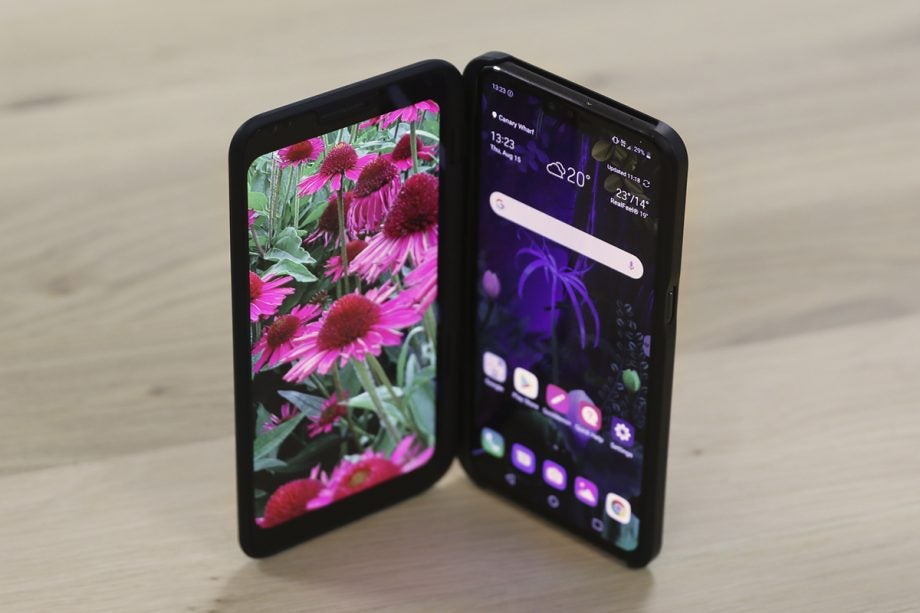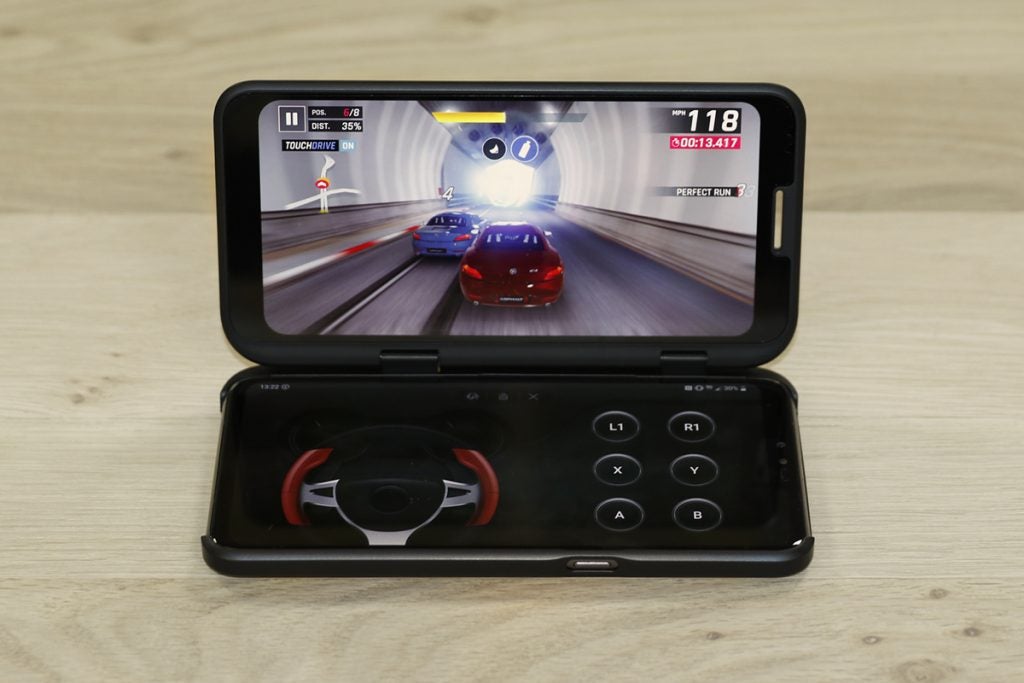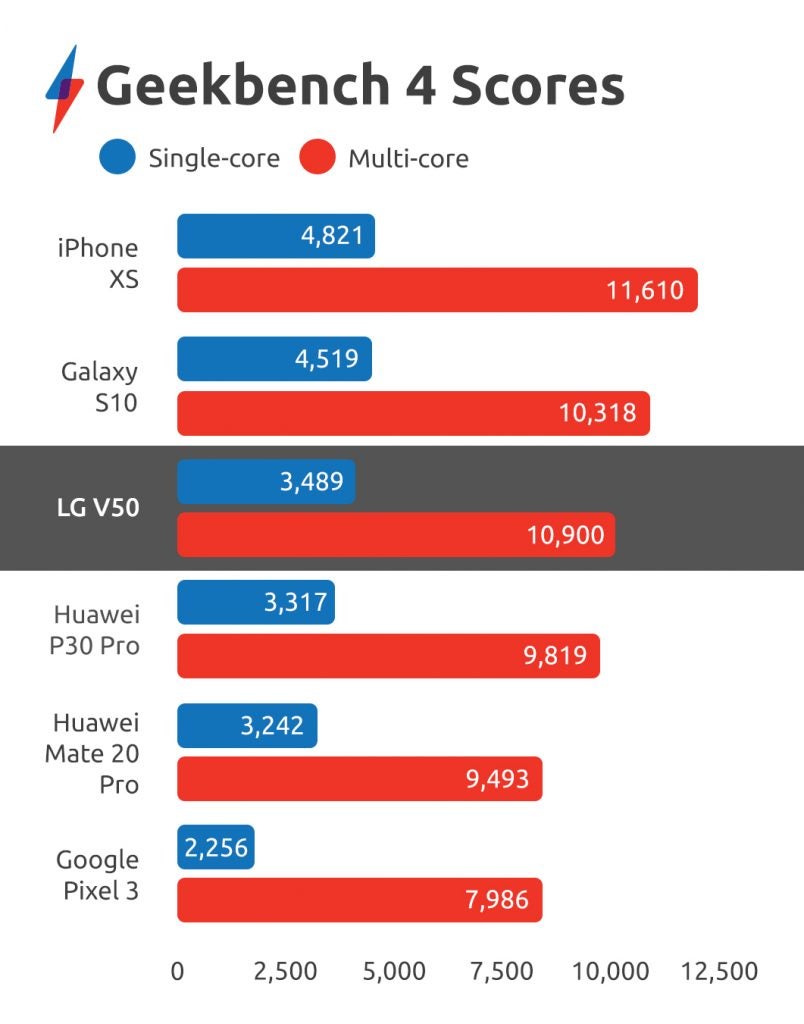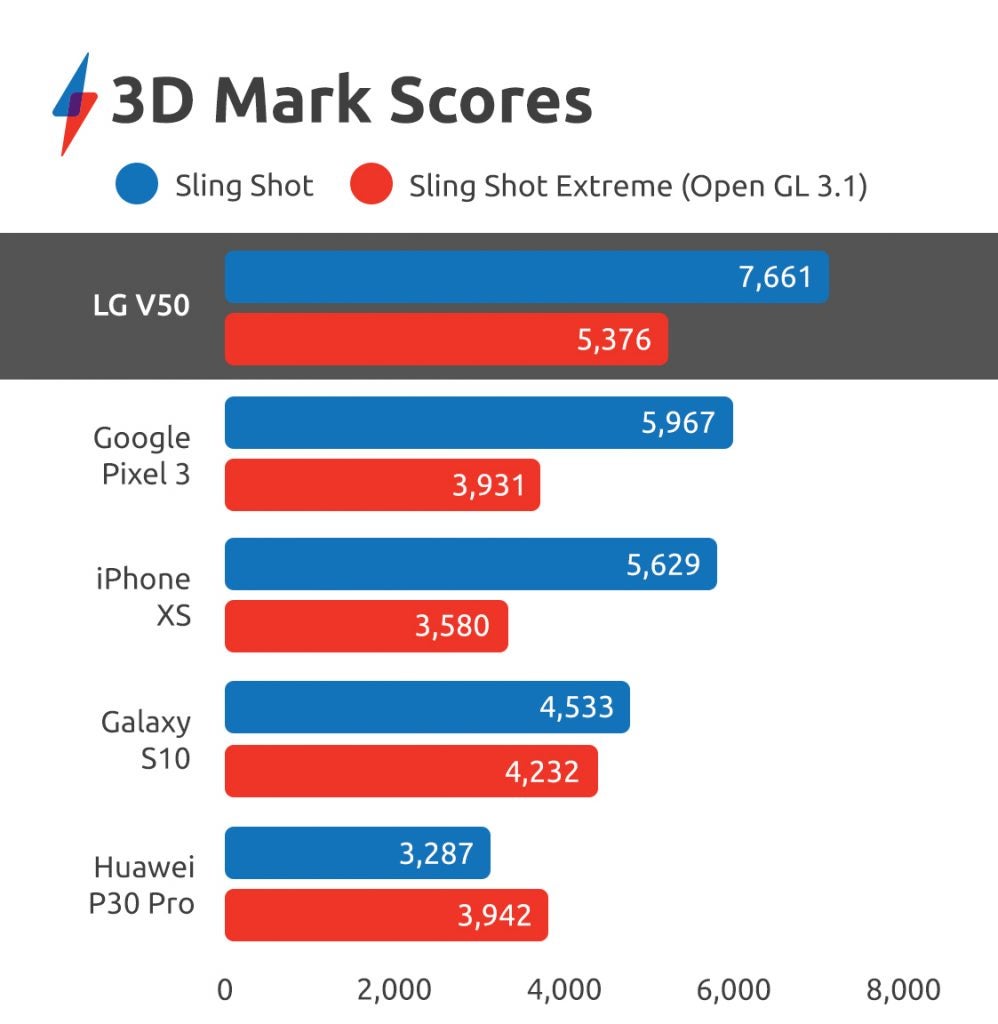LG V50 ThinQ Review - Performance Review
Performance
LG V50 performance review

Sections
- Page 1 LG V50 ThinQ Review
- Page 2 Camera Review
- Page 3 Battery Life Review
- Page 4 Performance Review
- Page 5 Screen Review
The LG V50 should last you – provided LG sorts out its software
- The LG V50 is powered by the same flagship Qualcomm Snapdragon 855 processor as many other 2019 Android flagships
- You only have the option of 6GB of RAM and 128GB of storage, plus microSD expandability
- The LG V50 benchmarks extremely well and offers responsive real-world performance
Like most of 2019’s other Android flagship phones, the LG V50 is powered by Qualcomm’s top-tier Snapdragon 855 SoC. The newer, gaming-focused 855 Plus wasn’t yet announced when the phone first launched but that doesn’t detract from its overall ability, which is still highly competitive.

As mentioned in the main review, I did run into the occasional lock-up and the phone did restart of its own accord on one occasion, but I place such issues firmly on LG’s software, rather than any known shortcomings with Qualcomm’s chipset.
The sole pairing of 6GB of RAM is comparatively limited when you consider that the likes of OnePlus and Samsung are now giving potential customers the option of speccing their phones with up to 12GB of memory. At least the V50 does still retain microSD expandability, which can’t be said for new entrants like the Galaxy Note 10.
Related: Best Android phones 2019
Even when juggling apps with full-screen multitasking across both the phone’s primary display and the detachable Dual Screen accessory, I never noticed any significant slowdown or sudden lag; in fact, the V50 seemed completely comfortable with everything I threw at it, from 4K HDR video playback to gaming.
In benchmarking tests it also scored among the top phones out there, in some instances coming second to the current benchmark king, the Black Shark 2.



Related: 5G in the UK
While I have few doubts about the V50’s general performance over the course of your average two-year plan, its abilities as a 5G device are currently limited, not by its own hardware, but the infancy of the 5G infrastructure currently offered by carriers that support the new network technology. In the UK, that’s currently EE and Vodafone.
As it stands, when testing the V50 in one of EE’s active 5G areas, Canary Wharf in London, the phone offered comparable data speeds irrespective of whether I was on the carrier’s 4G or 5G network, with approximately 23Mb/s down and 20Mb/s up across multiple tests.


